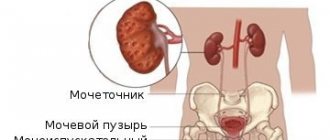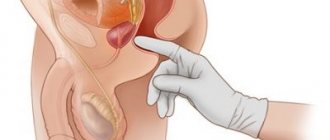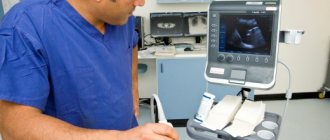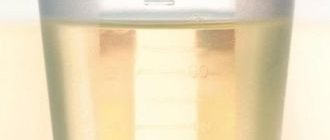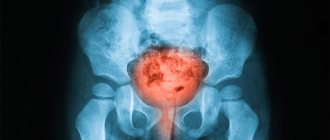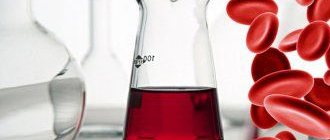With cystitis, the bladder becomes inflamed. The disease develops in both sexes, but women are at risk due to the anatomy of the genitourinary system. The reasons why cystitis worsens before menstruation are due to the characteristics of the urethra. It is short, wide, and along it pathogenic bacteria easily reach the bladder and ovaries. All this can provoke a delay in menstruation.
Cystitis and menstruation
Cystitis, regardless of its causes, does not go away on its own. The reproductive system, which is very vulnerable during menstruation, also suffers. With a chronic infection of the urinary organs, pelvic inflammation is inevitable. Its exacerbation is due to the action of hormones, but the following factors also influence:
- changes in the microflora in the vagina - its susceptibility to pathogens increases, and then they easily spread to neighboring tissues;
- weakening of the immune system - the balance of hormones changes, the main part of them is directed to the formation of the necessary environment for the renewal of the uterine mucosa, and the body’s natural defenses are reduced;
- hygiene products – if the vaginal microflora is altered, a negative reaction to the usual components is possible;
- improper intimate hygiene - this leads to inflammation of the genital organs, which spreads to the urinary system (discharge lingering in the perineum allows microbes to rise up the urethra).
Changes against the background of these factors explain why cystitis in women begins more often before menstruation than at other times of the cycle. Immunity drops sharply, making it difficult for the body to resist infections.
Cystitis also affects menstruation. This is due to disruption of the ovaries, whose main function is the production of hormones. Inflammation interferes with this process. A hormonal imbalance occurs, and there may be a delay in menstruation due to cystitis. When they do come, the bleeding increases.
Cystitis and delayed menstruation are interconnected, because the bladder, where inflammation is localized, is adjacent to the uterus and ovaries.
Treatment
This unpleasant disease can be treated in different ways, but not all methods are equally effective. Most often, antibiotics are required to eliminate the infection, and folk remedies can be used as auxiliaries as part of complex therapy. The consequences of improper treatment can be very unpleasant. Therefore, the selection of therapy should be entrusted to a specialist.
Medication
Bacteria that cause cystitis quickly adapt to antibiotics, so you need to select the necessary drugs together with a gynecologist or urologist. Only a specialist, after certain tests, will be able to say which medications will affect each specific type of pathogen. For cystitis, Nolitsin is often prescribed.
The following drugs are also used:
- Tsiprolet,
- Avelox,
- Amoxiclav,
- Furagin,
- Lomflox.
Sometimes it is enough to take just one tablet of Monural. But this is a strong drug that has many contraindications, so be sure to consult a specialist first. In addition, there are cases when this medication is powerless.
If necessary, No-shpa is prescribed as an analgesic; Canephron has proven itself well as an anti-inflammatory agent. Warming will also be useful to relieve inflammation, but during critical days this option must be used very carefully.
The disease is considered cured when appropriate tests indicate this. It is important to complete treatment, otherwise cystitis may become chronic and also become resistant to the antibiotics taken.
Folk recipes
The most rational treatment would be to use herbs with antimicrobial and antispasmodic effects.
Parsley infusion:
- 1 tsp. chopped parsley herb,
- 200 ml hot water.
How to prepare: pour boiling water over the herb, close the lid, leave for 2 hours. Drink 1/3 glass before meals.
Cranberry decoction:
- 0.5 tbsp. cranberries,
- 0.5 l of water,
- 2 tbsp. l. honey
Grind the berries in a blender. Squeeze and put the resulting juice in the refrigerator. The squeezed berries should be placed in an enamel bowl and filled with water, placed on the stove and boiled for 7 minutes. Cool the resulting broth to room temperature and mix with juice from the refrigerator. Add honey. This drink will not only have an anti-inflammatory effect, but will also help boost your immunity.
Diet
A diet for cystitis in women helps reduce the painful manifestations of the disease and speed up recovery. Do not underestimate the role of dietary nutrition in the complex treatment of the disease.
A properly selected diet will benefit the entire body. And if the patient does not violate the diet recommended by the doctor even after recovery, a recurrence of cystitis will not occur.
The main points of a therapeutic diet for the diagnosis of cystitis for women are as follows:
- Do not add salt to cooked food, or add as little salt as possible.
- Eliminate all spicy, fatty, smoked foods, sauces, and seasonings.
- Drink plenty of fluids. It provides a diuretic effect.
- Avoid sugar and confectionery products.
- Remember to prevent constipation.
Preference is given to light dairy and plant foods. In this case, the portions should be small, and the interval between doses should be 2-3 hours.
You can use without restrictions for cystitis:
- raw, boiled or baked beets,
- cucumbers, cabbage, zucchini, carrots - preferably fresh or lightly stewed,
- fruits and berries from the home garden - apples, pears, cherries, watermelons, cranberries,
- all fermented milk products without flavorings and low-fat fruit fillers - fermented baked milk, kefir, yogurt, homemade cheese,
- porridge - it is best to eat buckwheat and oatmeal; rice is consumed in moderation, as it can cause constipation.
It’s great if a woman can stick to a vegetarian diet for some time. If you can’t do without meat, then it should be low-fat varieties - chicken, turkey, veal, rabbit.
You can eat 1-2 servings per week of stewed or baked low-fat fish - cod, hake, perch, pike. Instead of salt and pepper, you should use greens and parsley or dill seeds, spinach.
All food should be cooked gently with minimal addition of oil and spices. In this case, it will be very useful to purchase a steamer or multicooker to quickly prepare dietary dishes at home.
And the most important point in the diet for cystitis is compliance with the drinking regime. You need to drink constantly, not counting the consumption of liquid soups and jelly. This could be weak green tea with lemon, natural carrot or pumpkin juice, cranberry or lingonberry juice, or just drinking purified water.
You should not have a tea party with cakes and sweets - they are also prohibited now. Desserts are limited to milk porridges, cottage cheese casseroles, and berry soufflés.
Pathology during menstruation
The causes of cystitis during menstruation lie in pelvic inflammation. When a chronic infection is present in the appendages, it is activated due to decreased immunity during critical days. Pathogenic bacteria from the intestines and vagina penetrate the urinary canal through a shortened route - along with menstrual flow. Then they rise to the bubble.
Blood is also a favorable environment for pathogenic bacteria. Therefore, in menstrual flow they begin to actively grow and divide.
Critical days are not easy for many, and cystitis and menstruation at the same time is a combination that only worsens well-being. Abdominal pain is often present due to sloughing of the mucous membrane and uterine contractions. Cystitis during menstruation adds new symptoms:
- frequent urination with pain;
- lethargy;
- pain in the stomach;
- feeling of a full bladder;
- atypical impurities in the urine;
- elevated temperature.
Reasons for development
This happens because bacteria, which normally exist in the uterus, multiply much more actively during menstruation. A nutritious and moist environment creates all the conditions for increasing their numbers. And the processes occurring in the body contribute to the rapid penetration of bacteria into the urethra through the genital tract, as a result of which inflammation of the bladder is activated.
Let's take a closer look at the reasons that cause cystitis during menstruation. It should be noted that in most cases this occurs against the background of a concomitant disease, the existence of which the woman may not even suspect:
- Changes in the hormonal levels of the body.
- General weakening of the immune system.
- Severe hypothermia.
- The presence of an inflammatory process in the uterus or appendages. This is the main culprit that causes cystitis during menstruation. The reason is that due to the active proliferation of bacteria, inflammation spreads to other organs of the genitourinary system.
- Candida fungus or yeast is such a common problem that most women simply do not pay enough attention to it. But in vain, because the presence of a fungal infection is an aggravating factor.
- Failure to comply with personal hygiene rules. At first glance, is it worth talking about this in our time? There are a huge number of hygiene products on sale that will help keep your genitals clean at any time. But the practice of doctors shows that some pads and napkins are too expensive for their patients, and some brands cause an allergic reaction. Therefore, warm water and soap remain the ideal way to maintain hygiene.
- Physiological features. The location of the urethra and anus can be different, but their distance from each other is of particular importance. The closer they are, the more likely it is to transfer bacteria. This is also facilitated by wearing uncomfortable underwear and synthetic thong panties.
The reasons for the development of bladder inflammation lie in chronic inflammatory pathologies of the urogenital system. Pathogens are most active during menstruation.
Inflammation is caused by:
- gonococci;
- streptococci;
- coli;
- viruses;
- fungi;
- allergens;
- toxic substances.
Microorganisms can cause cystitis from using tampons and pads. If hygiene products are not changed in a timely manner, ideal conditions are created for their reproduction and penetration into the bladder.
In the absence of proper treatment, the acute form of the disease gradually becomes chronic. Getting rid of it is much more difficult.
The reasons for the development of cystitis after menstruation are:
- infection from vaginal discharge into the bladder through the urethra;
- allergies to hygiene products;
- development of infections transmitted through sexual contact;
- penetration of Candida fungi into the genitourinary tract, causing inflammation and thrush;
- activation of inflammatory processes caused by hormonal changes;
- the presence of inflammation in the uterine appendages.
After menstruation
Since the immune system is restored, the body is less vulnerable. Therefore, a woman may feel that cystitis has worsened after menstruation, although this is often not the cause of pain in the lower abdomen and increased urge to go to the toilet.
Probably both inflammation of the bladder due to bacteria entering it through the urethra with secretions, and:
- allergies to intimate hygiene products;
- irritation of the bubble caused by the components of the gasket material;
- venereal disease;
- candidiasis.
Symptoms
Signs of cystitis depend on the degree to which it has reached. If the disease is expressed in acute form, then the woman is bothered by pain during emptying of the bladder, pain in the lower abdomen, temperature changes, and malaise. Chronic cystitis is an insidious disease, which is characterized by a course without obvious signs.
If cystitis worsens, it can be recognized by the following symptoms:
- constant trips to the toilet “in small ways”;
- false urge to urinate;
- severe cutting pain at the time of urination;
- the presence of pus and traces of blood in the urine;
- nagging pain in the lower abdomen.
If the above symptoms are detected, it is important to visit a specialist in time so that he can establish a final diagnosis. If cystitis is not advanced, it is much easier to cure it than an acute or chronic disease.
Cycle disorder after recovery
After cystitis, there may be a delay in menstruation, and this is more likely than during an exacerbation of the disease. When it becomes chronic, inflammation gradually spreads to nearby organs, including the ovaries. Their work is disrupted, hormonal levels are disrupted. So your period may be delayed more than once due to cystitis. It happens that this happens every month.
Delayed menstruation after cystitis is not the only complication. In the absence of adequate treatment, there is a risk of purulent infections and tissue damage, which can only be treated surgically.
Whether there can be a delay in menstruation after treated cystitis depends on the characteristics of the body. With proper therapy, menstruation returns to normal. The norm is a short delay due to antibiotics and a weakened body. More abundant discharge and changes in the duration of menstruation are possible.
Prevention
To reduce the risk of cystitis, a woman needs to follow simple rules:
- Always dress appropriately for the weather. In the cold season, be sure to insulate the lower part of the body.
- Do not overcool your body.
- Take vitamin-mineral complexes and medications to strengthen the immune system.
- Visit a doctor in a timely manner and treat any identified diseases of the genital organs.
- Have one sexual partner.
- Use pads and tampons as hygiene products in very rare cases.
- Organize your daily routine and establish a healthy diet.
- Maintain genital hygiene regularly.
- Wear only high-quality underwear made from natural cotton.
- If any unpleasant symptoms occur, consult a doctor immediately.
Cystitis is a very insidious and dangerous disease that requires immediate medical intervention. If you let the disease take its course, it will develop, inflammation will spread to neighboring organs, and this is dangerous due to the appearance of severe complications, including infertility.
Diagnostics
To determine whether cystitis can cause a delay in menstruation and disrupt menstruation, it is necessary to examine the hormonal levels. However, the first thing a woman should do is take a pregnancy test. If it shows a negative result, then you should get tested.
If there was a delay due to cystitis, it is important to start treatment as quickly as possible. Diseases of the genitourinary system are dangerous because they can cause infertility.
It is recommended to take tests at the very beginning of the cycle to identify hidden diseases. Prescribed:
- Ultrasound;
- blood test for hormones;
- laparoscopy;
- X-ray or MRI of the head (possible dysfunction of the pituitary gland).
Urgent help for cystitis in women using folk remedies
| Symptoms | Herbal collection |
| Frequent urination | Chamomile, motherwort, string, lemon balm, valerian, hops, trefoil |
| Painful urination | Chamomile, clover, thyme, calamus, maple, willow, celery, yarrow, black currant, flax seed |
| Hematuria | Pumpkin seed, flower, linden, yarrow, nettle, St. John's wort, flax seed, blackberry leaf, chamomile |
| Urinary retention | Licorice root, carrot seed, dill herb and seed, birch leaf, yarrow |
| Urinary incontinence | Chicory, marsh wild rosemary, St. John's wort, centaury, strawberry leaf, elecampane root, lemon balm, peppermint, violet |
